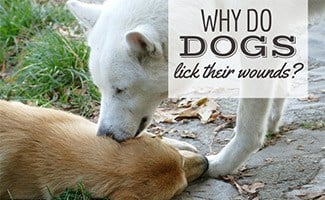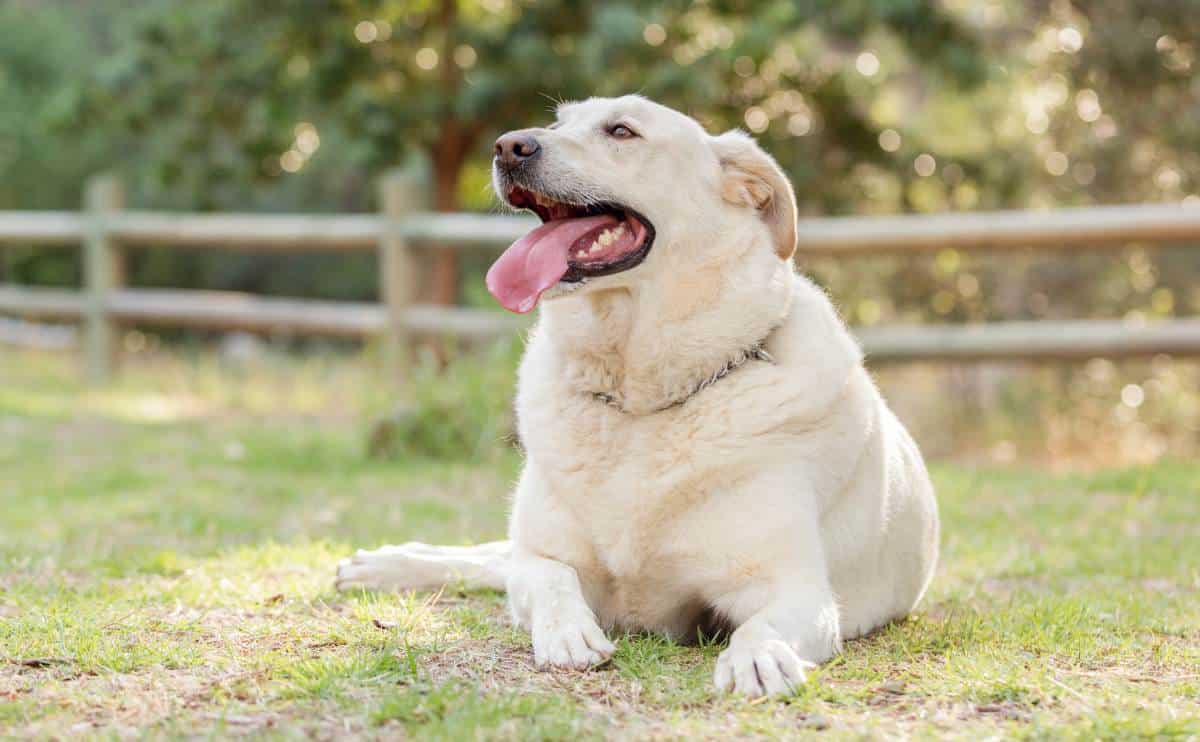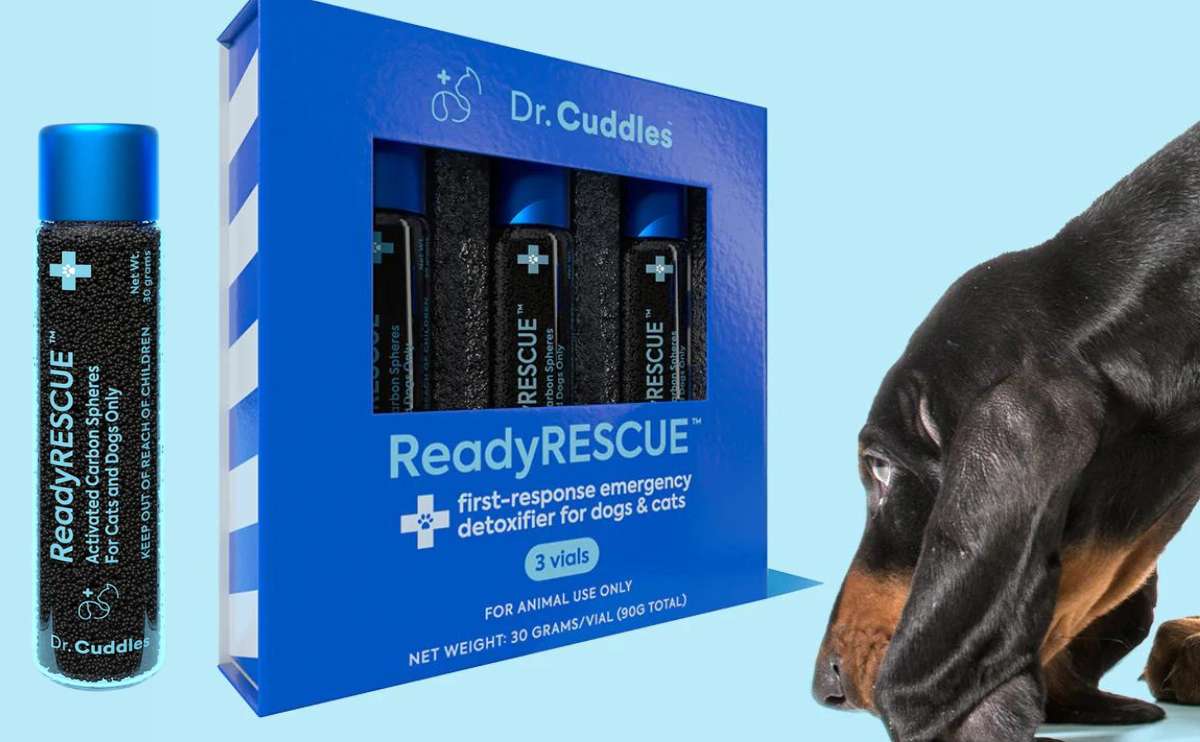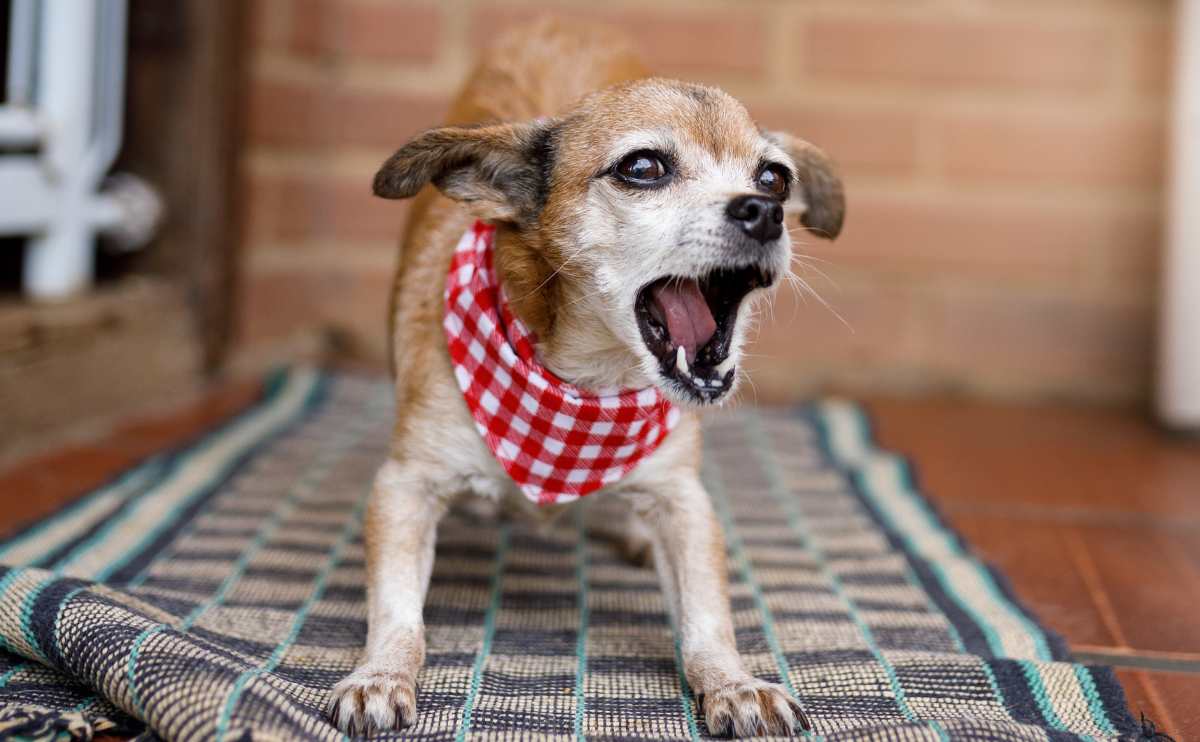When you purchase through links on our site, we may earn a commission. Here’s how it works.

We’ve all heard the expression “licking one’s wounds” (meaning to recover after defeat or embarrassment). It’s believed that this saying originated hundreds of years ago from people observing animals licking their injuries after a predator’s attack. Have you ever wondered why dogs and other animals lick wounds in the first place? And is it beneficial or harmful to their healing?
Why Do Dogs Lick Wounds?
Licking wounds is an instinctive behavior for dogs and many other animals, like cats, primates, horses, and rodents. Their mouths are the only remedy dogs have to try to clean their wounds. It’s not like they can break out the antiseptic from the medicine cabinet!
Does Dog Saliva Have Healing Properties?
Another reason dogs may lick their wounds is because dog saliva contains slight antimicrobial and antibacterial properties. Studies have found that dog saliva is bactericidal (meaning it can kill bacteria) against Escherichia coli and Streptococcus canis (but it’s not sufficient actually to heal wounds). Human saliva possesses some healing properties as well, but the mouth contains bacteria that are harmful if introduced into wounds.
So technically, yes, dog saliva contains some healing properties, but not to the extent that many people believe. Learn more about dog saliva in our article about whether dogs’ mouths are cleaner than humans’ mouths.
Is It Okay For Dogs To Lick Their Wounds?
Experts agree that it’s not a good idea to let dogs lick wounds and even smaller cuts and abrasions. While licking wounds may clean away dirt and debris, the friction of licking can be quite harmful to the healing process. Some licking can stimulate blood flow, but it is better to use a bandage and healing ointment. Excessive licking irritates the wound and can lead to infections, hot spots, and potential self-mutilation through chewing.
Licking and chewing can also reopen wounds that are starting to heal. This is a major concern with surgery sites, as licking can break down sutures and reopen the site. That’s why dogs are usually sent home post-surgery with an Elizabethan collar (E-collar) to keep their mouths away from sutures.
Why Do Dogs Lick Other Dog’s Wounds?
This is an instinctual behavior. Canines are also attracted to the smell of wounds, blood, and infection. They may also lick another dog’s wounds as a show of comfort. It is not wise to let dogs lick other dog’s wounds. This can put both dogs at risk, so take steps like using bandages and even separating the dogs if needed.
What About Dogs Licking Human Wounds?
It is often asked, “Do dog licks heal human wounds?” The answer is no. It’s not a good idea to let your dog lick your wounds. The licking process disrupts a human’s natural tissue healing process, just as it does for them. Another reason is because of the difference in the types of bacteria that live in human tissue vs. a dog’s mouth.
In fact, a 2012 study found that dogs licking human wounds puts you at risk for developing zoonotic diseases (infectious diseases caused by bacteria, viruses, parasites, and fungi that spread between animals and humans).
Treating Dog Wounds

You should always take your dog to your veterinarian as soon as possible for any deep wounds. For smaller cuts and abrasions, wash the area gently with soapy water, thoroughly rinse it, and pat it dry.
With your vet’s okay, you can use a non-toxic antibacterial ointment to promote healing. Vetericyn Plus is an excellent vet-recommended antibacterial gel that’s safe if licked or ingested. It’s also useful for relieving hot spots and irritated, itchy skin due to allergies. Learn more about skin allergies and other skin problems with dogs.
How To Get A Dog To Stop Licking A Wound
There are several methods you can use to protect your dog’s wounds from licking.
Cone Collars

As we mentioned earlier, many vets recommend using an E-collar (often referred to as a cone) to help restrict your dog’s access to her wounds. The Comfy Cone by All Four Paws is a comfortable, foam-backed alternative to hard, plastic cones. It comes in 9 sizes and has Velcro closures for a perfect fit. It’s also water-resistant and easy to clean.
Recovery Shirts

If your dog’s wound is on her torso, i.e., a spaying or neutering incision, abdominal surgery, etc., a great alternative to the Elizabethan collar is a doggy onesie, like this FOREYY Professional Recovery Suit. Not only do recovery shirts protect wounds from licking and chewing, but they also help keep them free from dirt and debris and from getting wet. Bonus: you can also use these to ease your dog’s anxiety.
Liquid Bandage Spray

You can also try using a liquid bandage spray for minor cuts. Nutri-Vet Liquid Bandage Spray has a bitter taste that discourages licking and chewing. It’s veterinarian-formulated to help protect and soothe cuts and adds a layer of protection to keep debris out. You can also find anti-lick strips (like band-aids) online, but most pet owners say they don’t work.
Paw Bandages

PawFlex Medimitt Paw Bandages can help prevent dogs and cats from licking minor cuts and scrapes on their paws. These multi-packs of disposable bandages are self-adhesive, breathable, and have convenient Velcro closures. They’re also washable if you want to reuse them and come in a wide variety of sizes.
TIP: When taking your dog outside, it’s a good idea to protect your dog’s cuts from dirt, debris, water, and other substances. These ECO-FUSED self-adhering bandages adapt to your dog’s body shape, won’t stick to her fur, and are breathable. If the wound is on her paw, you can use dog booties when outside for added protection.
How To Deal With Hot Spots (Video)
Hot spots are areas of a dog’s skin that have become itchy, painful skin lesions that result from constant licking, biting, and scratching. Chronic inflammation causes these spots to become warm, hence the name “hot spots.”
If your dog has hot spots, check out this veterinarian’s advice on how to treat them safely at home. Of course, we encourage you to consult with your vet on specific treatments for your pup. Learn more about hot spots on dogs.
Our Personal Experience With Dogs Excessively Licking Wounds And Hot Spots
“My dog Daisy, an 11-year-old Labrador Retriever Pitbull mix, has developed some hot spots on her front leg over the last year. It started happening when we got an excessive amount of rain for several weeks. Plants started to grow in our backyard and neighborhood that we had not seen before. Shortly after, we noticed Daisy had a spot on her leg that she would not stop licking. It turned into a big, painful sore. We went to the vet for advice and testing to be sure it wasn’t an infection or other more serious problem. The vet believes she has an allergy to one of the plants, causing her itchy skin and excessive licking.
She managed to chew through bandages and seemed to like the taste of the ointment we were using. We ended up using a recovery brace and anti chew spray to stop the wound licking. It took about three weeks for the spot to fully heal once we figured out the right combination of treatments.”
– Danielle DeGroot, Canine Journal
Be Prepared For Dog Injuries
You never know when your dog is going to get injured. Being prepared is key. Make sure you have a dog first aid kit handy at home or when you take your pup hiking or on other activities. Be prepared to treat any injuries and distract them from licking. A licking mat and peanut butter can help distract your dog from the wound and give them another focus. An anti-chew spray, as long as it is non-toxic and safe to ingest, can be sprayed on or near the hot spot area to discourage attention. And if your dog’s problem is not licking wounds but he is licking his butt, we cover that too.
Tagged With: Trivia

